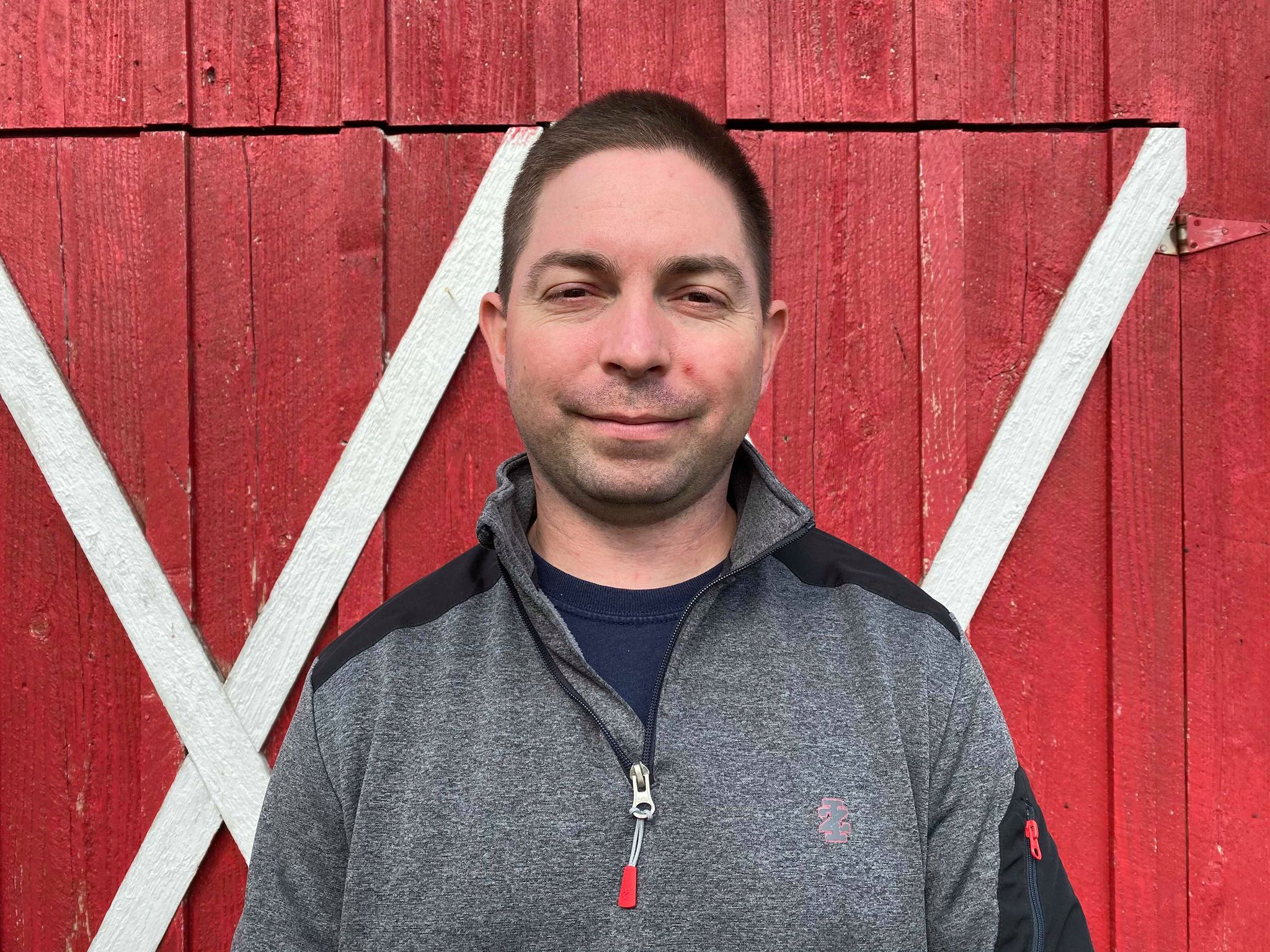Danielle Teuscher, the mother of a donor-conceived child, seeks fairness, accountability, and the return of her gametes.
By Gregory Loy
In 2013, Danielle Teuscher, of Portland, Oregon, gave birth to a daughter, Zoe, who’d been conceived with sperm donated by an “Open ID” donor—a donor who’s open to contact when his donor-conceived offspring turn 18 years of age. Teuscher acquired the sperm from NW Cryobank, a Spokane, Washington sperm bank. Like other children conceived through donor sperm, Zoe not only lacked information about her ethnicity and ancestry, but she also lacked complete access to half of her medical history.
In hopes of learning more about Zoe’s heritage and any health risks she might face, Teuscher ordered a direct-to-consumer DNA test from 23andMe for her daughter. She had not attempted or intended to learn the identity of the donor, but when the results came in, there was apparently a close match on 23andMe who was willing to be contacted by matches. Teuscher sent a simple message through the 23andMe website indicating that the match’s son may be her child’s donor and that she, too, was receptive to contact. The match was puzzled, so Teuscher apologized and moved on. But the matter didn’t end there.
Soon she received a cease and desist letter from NW Cryobank threatening her with a $20,000 legal action for two breaches of a clause in an electronic agreement—one, having given her daughter a DNA test, and the other having contacted the donor’s mother. The letter warned her not to contact the donor or make attempts to discover his identity or background. Further, the sperm bank informed Teuscher that it had rescinded her access to four vials (she has five vials) of gametes that she’d paid for so that she might one day have another child who would be a genetic match to Zoe. What’s more, the company refused to allow Teuscher access to medical information updates from the donor or to be in touch with parents of other children conceived from that donor’s sperm, and it changed the status of the donor from “Open ID” to “Anonymous.” Should Teuscher use other DNA tests or try in any way to identify the donor, the letter said, the company would seek a restraining order or an injunction. Since NW Cryobank sent the cease and desist letter to Teuscher, it’s taken down its donor sibling registry, an action that harms all recipients of donor sperm and their children by preventing them from being able to connect with relatives and make other important connections for the children’s wellbeing.
In this age of widespread availability of DNA testing, many would argue both that anonymity is no longer sustainable and that a child couldn’t possibly consent to donor anonymity and waive her right to know where she came from. Still, NW Cryobank—arguing that a breach of donor anonymity could jeopardize the personal relationships of donors—took the punitive step of denying Teuscher access to her gametes and the promise of being able to bear future children genetically related to Zoe.
Not willing to sign an agreement that restricted her access and her rights, and refusing to accept that she’d not be able to conceive another child who would be a genetic sibling to Zoe, Teuscher became determined to fight back against an unregulated industry and argue for Zoe’s rights and, in the process, those of all donor-conceived offspring.
In June 2019, she struck back, filing a lawsuit in federal court in the Eastern District of Washington against NW Cryobank. In their complaint, the Teuschers’ make many claims. NW Cryobank has moved for dismissal of only three of these claims. The first of these claims that might be dismissed by the Court is that which seeks damages for violation of Washington’s Consumer Protection Act (CPA). “Washington has a strong policy through the enforcement of the CPA to protect consumers against business practices that are unfair and harm the public,” says Jill H. Teitel, Esq., of Law Offices of Jill H. Teitel, PLLC, New York, New York, the Teuschers’ lead counsel. “Teuscher has alleged that NW Cryobank’s practices were and are unfair and deceitful and negatively affect the public interest because they harm or have the capacity to injure persons,” says Teitel, adding that “Teuscher further alleges that at no time did she contract away her rights to her gametes.” Penalizing Teuscher for testing her child’s DNA was unfair. Changing the donor’s identity designation from “Open ID” to “Anonymous” was unfair. Taking away the Teuschers’ ability—and that of all other donor recipients and donor-conceived offspring—to make contacts through a sibling registry that was promised by NW Cryobank was unfair. And masking the donor’s health updates by taking down the donor’s profile from NW Cryobank’s website was unfair. This donor had already stopped selling his sperm to the bank by the time Teuscher had purchased his sperm to use to get pregnant with her daughter, Zoe.
The second claim NW Cryobank seeks to dismiss is that the company’s contracts are unconscionable. “The complaint alleges that NW Cryobank presented Teuscher with an on-line ‘click-wrap’ agreement that didn’t permit review by a lawyer,” Teitel says. “Further, the agreement included many provisions that are biased toward NW Cryobank, for instance that any attorneys’ fees spent by the sperm bank on any court action shall be paid by the customer, which is against Washington law.”
The third claim NW Cryobank seeks to dismiss is the assertion that the company refused to acknowledge the severe emotional distress its actions have caused. The bank apparently cannot fathom that Teuscher’s rights have been trampled and that their conduct was outrageous and caused unconsionable injury to the Teuschers. It brashly questions why Teuscher would be emotionally harmed by its actions and completely denies the reality that she lost her gametes and, along with them, the hope of bearing children genetically related to Zoe.
Subsequent to the filing of the Teuschers’ lawsuit, NW Cryobank had filed a partial motion to to dismiss two of the complaint’s claims. The Teuschers’ legal team opposed that motion. When NW Cryobank failed to get that dismissal, Teuscher amended her complaint, mostly to clarify the damages and injuries. NW Cryobank recently filed its new partial motion to dismiss the three claims outlined above, including in this second motion the dismissal of Teuscher’s claim of intentional infliction of emotional distress.
An important aspect of this case is whether any outcome will have broader repercussions. Right to Know, a nonprofit organization in Washington State, is following the case closely because it’s a lightning rod, igniting issues that are central to the “Right to Know” movement. Further, this case, in effect, will shape the law on the boundaries of what a company can get away with in regard to a person’s genetic material and potential separation from relatives. The “violations” claimed by NW Cryobank appear to lend weight to the idea that it views itself as the de facto owner of Zoe’s genetic information. Adding insult to injury, NW Cryobank insists that Teuscher has no right to test Zoe’s DNA and also might be claiming that Teuscher pay for monetary damages, which begs the question, what monetary damages does it believe it has incurred?
Additionally, the contract that promised donor anonymity, as NW Cryobank interprets it, effectively restricts the rights of all of his extended relatives with regard to communication with donor-conceived individuals. It removes their rights to know or be known by all of their genetic family. Does a corporation or individual have the power to own this information without the consent of all parties involved? The courts will have to decide this and other interesting questions posed by this case, but if this is interpreted in the favor of NW Cryobank, it likely will have consequences extending beyond the Teuscher family and the donor-conceived community.
As previously noted, NW Cryobank has filed a second motion to dismiss Teuscher’s three claims. Based on the case file and discussions with lead counsel from Teuscher’s legal team, the Eastern Washington Federal Court will hear the case on January 30th to determine whether Teuscher’s three claims will be dismissed.
Teuscher also recently filed a motion to become her daughter’s representative for purposes of this lawsuit, and this issue should be decided soon by the Court.
Right to Know is following the case closely as it’s the first in the nation to fight back in this manner and challenge NW Cryobank’s aggressive practices and unfair policies. Because this ruling could have such a broad effect, we urge everyone to care and become involved. Join us in supporting Danielle and Zoe Teuscher and standing up for everyone’s right to know and own their genetic identities.
What can individuals do to help? Contribute to Teuscher’s GoFundMe campaign to help her keep her lawsuit alive. There are many expenses involved in an ongoing lawsuit, and she needs the support of our community to make a change and challenge the practices of NW Cryobank. Click here to donate.
— Gregory Loy is a cofounder of the Washington State nonprofit organization Right to Know.





